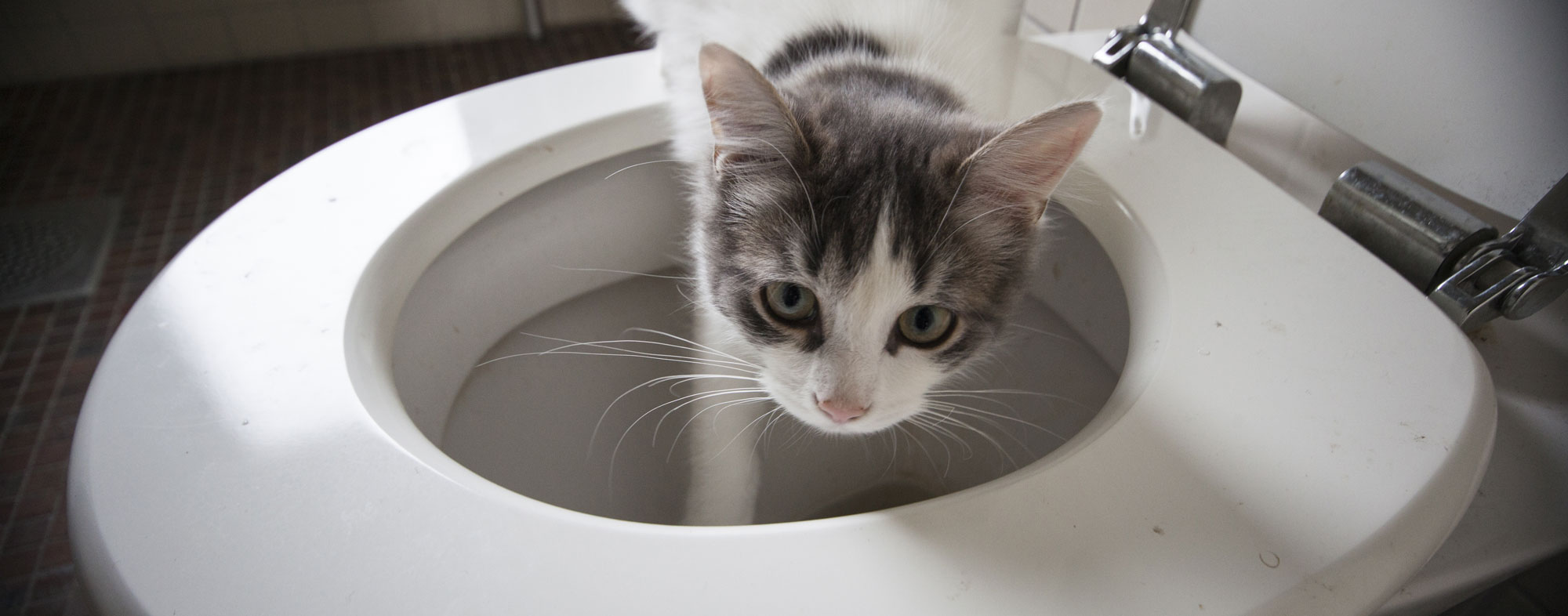Prevent Plumbing Problems: Don't Flush Cat Poop Down Your Toilet - Professional Advice
Prevent Plumbing Problems: Don't Flush Cat Poop Down Your Toilet - Professional Advice
Blog Article
In this article below you might get a good deal of great resources related to How to Dispose of Cat Poop and Litter Without Plastic Bags.

Intro
As pet cat owners, it's vital to be mindful of exactly how we get rid of our feline friends' waste. While it might seem convenient to flush feline poop down the toilet, this method can have detrimental repercussions for both the setting and human wellness.
Environmental Impact
Purging feline poop presents damaging microorganisms and bloodsuckers into the water, posturing a considerable threat to aquatic communities. These impurities can negatively influence aquatic life and compromise water quality.
Health Risks
Along with environmental concerns, flushing pet cat waste can also pose health threats to humans. Cat feces may have Toxoplasma gondii, a parasite that can create toxoplasmosis-- a potentially severe disease, particularly for pregnant women and individuals with damaged body immune systems.
Alternatives to Flushing
The good news is, there are safer and a lot more responsible methods to take care of feline poop. Think about the complying with choices:
1. Scoop and Dispose in Trash
The most common approach of disposing of feline poop is to scoop it into a naturally degradable bag and toss it in the garbage. Make certain to utilize a dedicated trash scoop and take care of the waste quickly.
2. Usage Biodegradable Litter
Choose eco-friendly cat clutter made from products such as corn or wheat. These clutters are environmentally friendly and can be securely taken care of in the trash.
3. Hide in the Yard
If you have a lawn, take into consideration burying cat waste in an assigned location away from vegetable yards and water sources. Make certain to dig deep adequate to avoid contamination of groundwater.
4. Set Up a Pet Waste Disposal System
Buy a pet dog waste disposal system particularly developed for pet cat waste. These systems make use of enzymes to break down the waste, minimizing smell and environmental impact.
Verdict
Liable animal possession expands past providing food and sanctuary-- it additionally involves correct waste monitoring. By avoiding purging pet cat poop down the bathroom and going with alternate disposal methods, we can decrease our environmental impact and shield human health.
Why You Should Never Flush Cat Poop Down the Toilet
A rose by any other name might smell as sweet, but not all poop is created equal. Toilets, and our sewage systems, are designed for human excrement, not animal waste. It might seem like it couldn’t hurt to toss cat feces into the loo, but it’s not a good idea to flush cat poop in the toilet.
First and foremost, assuming your cat uses a litter box, any waste is going to have litter on it. And even the smallest amount of litter can wreak havoc on plumbing.
Over time, small amounts build up, filling up your septic system. Most litter sold today is clumping; it is made from a type of clay that hardens when it gets wet. Ever tried to scrape old clumps from the bottom of a litter box? You know just how cement-hard it can get!
Now imagine just a small clump of that stuck in your pipes. A simple de-clogger like Drano isn’t going to cut it. And that means it’s going to cost you big time to fix it.
Parasitic Contamination
Believe it or not, your healthy kitty may be harboring a nasty parasite. Only cats excrete Toxoplasma in their feces. Yet it rarely causes serious health issues in the cats that are infected. Most people will be fine too if infected. Only pregnant women and people with compromised immune systems are at risk. (If you’ve ever heard how women who are expecting are excused from litter cleaning duty, Toxoplasma is why.)
But other animals may have a problem if infected with the parasite. And human water treatment systems aren’t designed to handle it. As a result, the systems don’t remove the parasite before discharging wastewater into local waterways. Fish, shellfish, and other marine life — otters in particular — are susceptible to toxoplasma. If exposed, most will end up with brain damage and many will die.
Depending on the species of fish, they may end up on someone’s fish hook and, ultimately on someone’s dinner plate. If that someone has a chronic illness, they’re at risk.
Skip the Toilet Training
We know there are folks out there who like to toilet train their cats. And we give them props, it takes a lot of work. But thanks to the toxoplasma, it’s not a good idea.
I ran across that review about Can You Flush Cat Poo or Litter Down the Toilet? while doing research the web. Appreciated our posting? Please share it. Let somebody else find it. Thanks a lot for taking the time to read it.
Click Here Report this page